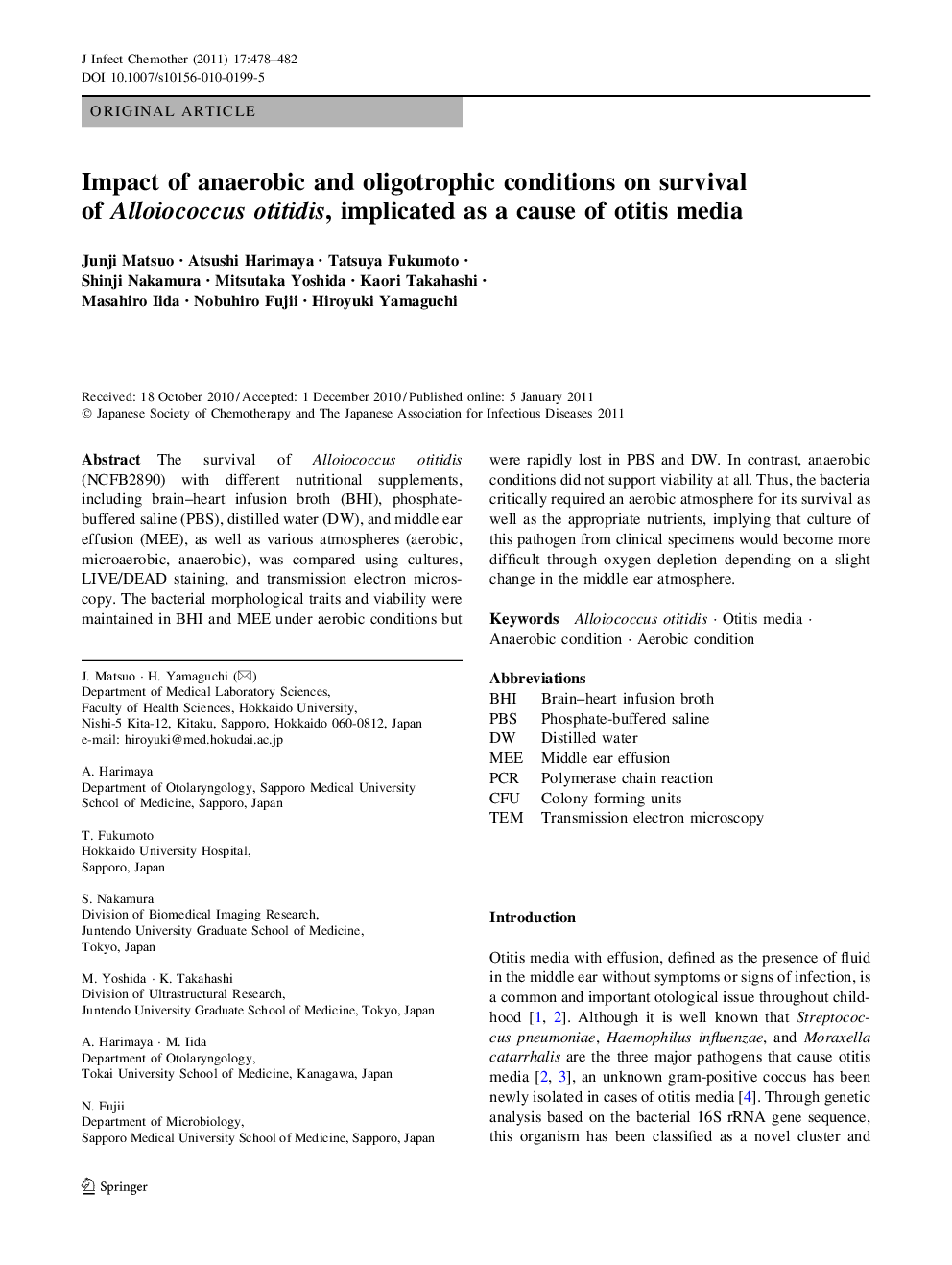| Article ID | Journal | Published Year | Pages | File Type |
|---|---|---|---|---|
| 6124137 | Journal of Infection and Chemotherapy | 2011 | 5 Pages |
Abstract
The survival of Alloiococcus otitidis (NCFB2890) with different nutritional supplements, including brain-heart infusion broth (BHI), phosphate-buffered saline (PBS), distilled water (DW), and middle ear effusion (MEE), as well as various atmospheres (aerobic, microaerobic, anaerobic), was compared using cultures, LIVE/DEAD staining, and transmission electron microscopy. The bacterial morphological traits and viability were maintained in BHI and MEE under aerobic conditions but were rapidly lost in PBS and DW. In contrast, anaerobic conditions did not support viability at all. Thus, the bacteria critically required an aerobic atmosphere for its survival as well as the appropriate nutrients, implying that culture of this pathogen from clinical specimens would become more difficult through oxygen depletion depending on a slight change in the middle ear atmosphere.
Related Topics
Life Sciences
Immunology and Microbiology
Applied Microbiology and Biotechnology
Authors
Junji Matsuo, Hiroyuki Yamaguchi, Atsushi Harimaya, Tatsuya Fukumoto, Shinji Nakamura, Mitsutaka Yoshida, Kaori Takahashi, Atsushi Harimaya, Masahiro Iida, Nobuhiro Fujii,
